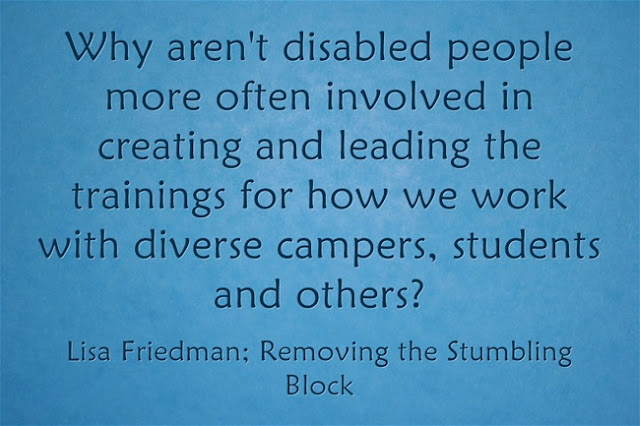A while back I shared an article on Facebook about the positive success a training for staff working with campers with disabilities.
Someone from outside the United States posted the following
comment:
“Stupid question (I don’t really understand what an American camp is) but how come disabled people aren’t leading and advising?”
Not such a stupid question at all.
I suppose that in it's simplest form an answer could be that
these staff members are being trained to work with younger children and that
young children are not equipped to create such trainings.
But that feels a little bit like a cop out.
And honestly, I don’t know the answer.
So why aren't disabled people more often involved in
creating and leading the training sessions for how we work with diverse campers,
students and others? As an expert in inclusive practice I
specialize in training and guiding others. I know that I am doing this successfully
based on knowledge, experience, and a whole lot of feedback.
And yet, if I take a step back, I realize that while I plan and
lead such training sessions, I don't develop inclusive practice in a vacuum. I
have learned and continue to refine my skills by working every day in an
inclusive school and synagogue. I may not have individuals with disabilities specifically
planning teacher training workshops with me, but they are absolutely my
teachers!
Is that enough?
And can the same thing be said of other such trainings like the camp one I referenced? Is it enough that the leaders of such programs work
with people of diverse abilities and use what they have learned and experienced
to shape the training for others? Or are we all just somehow missing the mark?
Don't miss a post from Removing the Stumbling Block:
I don't really know the answer to this one. What are your thoughts?
Don't miss a post from Removing the Stumbling Block:

No comments:
Post a Comment